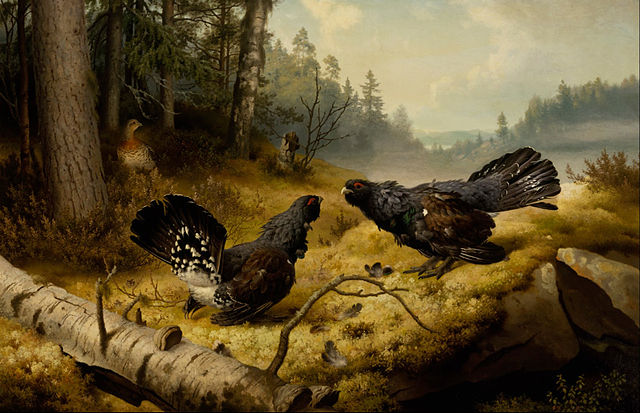
The Thammasat University Library has acquired a new book which should be useful for students interested in philosophy, sociology, psychology, and political science.
How to Keep Your Cool: An Ancient Guide to Anger Management is by Seneca, a Roman philosopher, statesman, and dramatist who lived over 2000 years ago.
His essay On Anger argues that rage is the most destructive passion: No plague has cost the human race more dearly.
Anger, also known as wrath or rage, is an intense emotional state. It involves a strong uncomfortable and hostile response to a perceived provocation, hurt or threat.
Modern psychologists view anger as a primary, natural emotion experienced by all humans at times, and as something that has functional value for survival. Uncontrolled anger can, however, negatively affect personal or social well-being and impact negatively on others.
This guide to avoiding and managing fury shows why it is so dangerous and why controlling it would benefit people and society.
One of the leading bits of advice is that if we want to be less angry, then we should try to be less aware of unimportant things that might upset us.
If we notice too many details of trivial matters that do not have real sustained importance, these can ruin our day.
So we should learn to overlook minor things about the way other people interact with us. Otherwise, if we respond to them, then we will give them an importance that they do not deserve.
Whether it is the way strangers react to us or even family and friends, if we make an effort to be less affected by small things that might potentially irritate us, we will be happier.
Seneca also points out that although there are many stories about heroes and leaders being motivated by anger, in fact the really able leaders, especially on the battlefield, remain cool and calm.
Another suggestion from Seneca:
If anyone is angry with you, meet their anger by returning benefits for it: a quarrel which is only taken up on one side falls to the ground; it takes two people to fight.
This is an edited edition, since the original text by Seneca was much longer and included some arguments from his time that are no longer considered valid today, such as the idea that women are generally more angry than men.

Here are some further thoughts about anger by writers, most of whom are represented in the TU Library collection:
- Anger makes dull men witty, but it keeps them poor.
Francis Bacon, Apophthegms (1679)
- The angry man always thinks he can do more than he can.
Albertano of Brescia, Liber consolationis et consilii (1246)
- By doing this you are like a man who wants to hit another and picks up a burning ember or excrement in his hand and so first burns himself or makes himself stink.
Buddhaghoṣa, Visuddhimagga IX, 23.
- When anger rises, think of the consequences.
Confucius, as quoted in Yu-p’u Wang The Sacred Edict: Containing Sixteen Maxims of the Emperor Kang-He (1817)
- Heav’n has no rage, like love to hatred turn’d.
Nor Hell a fury, like a woman scorn’d.
William Congreve, The Mourning Bride.
- Be not hasty in thy spirit to be angry: for anger rests in the bosom of fools.
Ecclesiastes 7:9.
- Anger is one of the sinews of the soul; he that wants it hath a maimed mind.
Thomas Fuller, The Holy State and the Profane State (1642)
- I have learnt through bitter experience the one supreme lesson to conserve my anger, and as heat conserved is transmuted into energy, even so our anger controlled can be transmuted into a power which can move the world.
Mahatma Gandhi. Young India (September 15, 1920)
- The Prophet … remains always a man apart, a narrow-minded extremist, zealous for his own ideal, and intolerant of every other. And since he cannot have all that he would, he is in a perpetual state of anger and grief; he remains all his life “a man of strife and a man of contention to the whole earth.” [Jeremiah 15:10] Not only this: the other members of society, those many-sided dwarfs, creatures of the general harmony, cry out after him, “The Prophet is a fool, the spiritual man is mad” [Hosea 9:7]; and they look with lofty contempt on his narrowness and extremeness.
Ahad Ha’am, “Priest and Prophet” (1893), in Selected Essays (1904), pp. 130-131
- Anger is momentary madness, so control your passion or it will control you.
Horace, Epistles, I. 2. 62.
- Above all he did not content himself with hurling invectives for emotional release and then to retire into smug, passive satisfaction. History had taught him it is not enough for people to be angry—the supreme task is to organize and unite people so that their anger becomes a transforming force.
Martin Luther King, Jr., “Honoring Dr. DuBois”, speech at International Cultural Evening at Carnegie Hall, 23 February 1968
- Hear, my son, the instruction of your father and don’t forsake the teaching of your mother (Mishlei 1:8). Get into the habit of always speaking calmly to everyone. This will prevent you from anger, a serious character flaw which causes people to sin… Once you have distanced yourself from anger, the quality of humility will enter your heart. This radiant quality is the finest of all admirable traits… so that you will succeed in all your ways. Thus you will succeed and merit the World to Come which lies hidden away for the righteous.
Moses ben Nachman
- A mild answer turns away rage, but a harsh word stirs up anger.
Solomon, Proverbs 15:1
- Since, Zoilus, you rage like a mad dog, and dart out your viper’s tongue against everybody, and can never be quiet, and are always swelling like the frog, I wonder you too don’t burst.
Phillip Stubbes, Phillippus Stubeus, Anatomy of Abuse (1583)
- A man raising his hand in anger does not see clearly.
Ancient Sumerian proverb, from c. 2000 BCE
- There are things that must evoke our anger to show we care. It is what we do with that anger. If we direct that energy we can use it positively or destructively.
Archbishop Desmond Tutu, Daily Express, 29th October 2008.
- Usually, when people are sad, they don’t do anything. They just cry over their condition. But when they get angry, they bring about a change.
Malcolm X, Malcolm X Speaks (1965)
- I was angry with my friend:
I told my wrath, my wrath did end.
I was angry with my foe;
I told it not, my wrath did grow.
William Blake, Christian Forbearance.
- Beware the fury of a patient man.
John Dryden, Absalom and Achitophel (1681)
- A man deep-wounded may feel too much pain
To feel much anger.
George Eliot, The Spanish Gypsy (1868)
- Beware the anger of the dove.
Traditional French proverb.

(All images courtesy of Wikimedia Commons)
